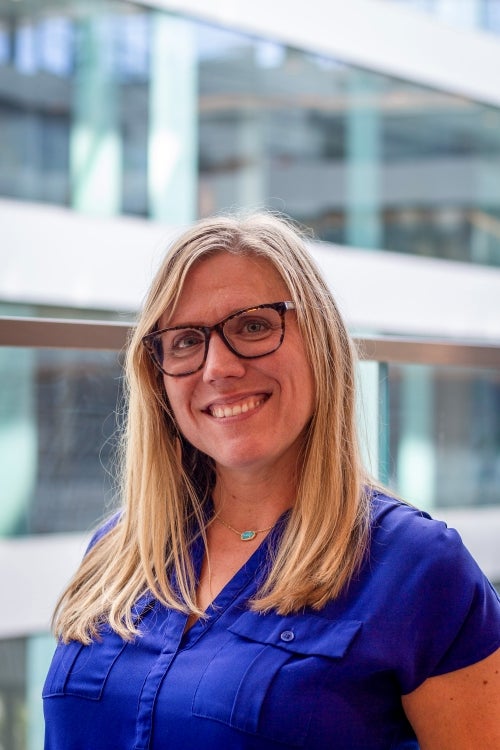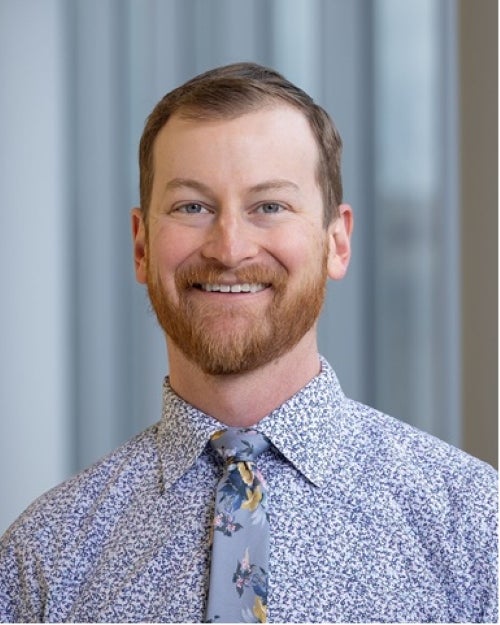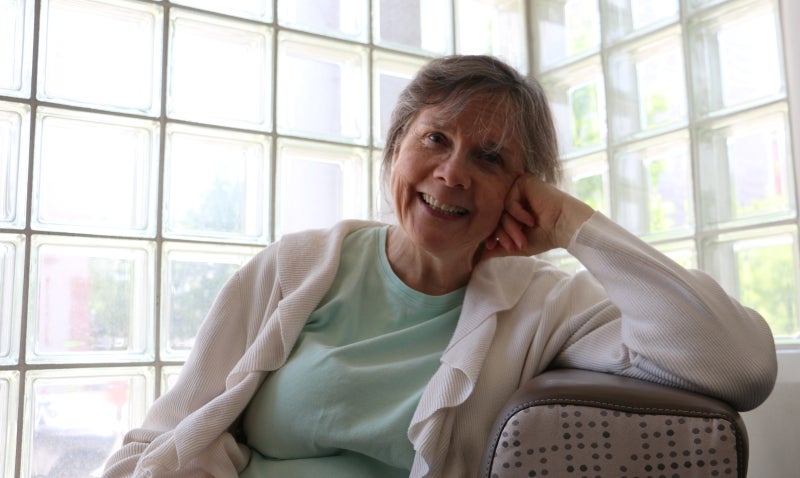A benefit that builds futures: CU staff and faculty turn educational goals into real-world results
Earning a new degree doesn’t always mean changing careers. For many CU faculty and staff, it’s about deepening their impact right where they are.
Expanding access to education
For CU faculty and staff, the Tuition Assistance Benefit (TAB) makes it possible to pursue academic and professional goals without the financial burden.
Whether it’s earning a second master’s degree, pursuing a long-held academic goal after decades in higher education or learning another language to better connect with patients, CU faculty and staff are using TAB to pursue education that directly supports their work, their communities and their long-term aspirations.
Education that drives innovation
For Holly Ables, TAB has been more than a perk — it’s been a pathway to meaningful, real-world impact.
A health care program manager in the Department of Psychiatry at CU Anschutz, Ables is on-track to earn her second master’s degree with the Tuition Assistance Benefit.
Her first master’s degree using TAB, in Information and Learning Technologies, helped her grow in her role coordinating graduate medical education programs. Her second, a Master of Business Administration with a focus in health care administration, is helping her lead new clinical initiatives that directly impact patient care.
“The MBA directly relates to all of it,” she said. “I’m using it as we speak.”

Holly Ables, health care program manager in the Department of Psychiatry at CU Anschutz
That includes launching CU’s first esketamine clinic for treatment-resistant depression and establishing the Colorado Bipolar Education (CoBE) project at CU Anschutz. Ables created CoBE’s website, logo and marketing materials all herself, using skills she learned in her health care marketing class, as well as developing an outreach strategy for the project.
Her hard work — inside and outside the classroom — paid off. CoBE is now expanding with a new national marketing campaign and website redesign. Through both initiatives, Ables is helping CU deliver more accessible, responsive care to patients across Colorado.
“That’s why I’m working toward an MBA in Healthcare Administration. It’s not necessarily to become a CEO of a huge hospital system; it’s to grow my current role and beyond in the Department of Psychiatry because the work I’m doing actually matters and is impacting patient care. That’s everything to me,” she said.
Learning to connect
For Ryan Candee, an assistant professor of internal medicine at CU Anschutz, TAB offered a way to bridge the gap between clinical expertise and cultural connection.
Having to rely on translators to communicate with Spanish-speaking patients, Candee decided to enroll in a Spanish course in Summer 2024, aiming to improve his ability to connect with his patients.
“I wanted to be able to connect with my patients directly,” Candee said. “We have a large Spanish-speaking population in Colorado, and I knew this would help me serve them better.”

Ryan Candee, assistant professor of internal medicine at CU Anschutz
What started as a single class has evolved into a pursuit of a full bachelor’s degree in Spanish — entirely covered by TAB.
“It’s an incredible benefit,” he said. “Once we get established in our careers, we forget that there’s room to go back and learn and grow in new ways. This reminded me that learning is always possible.”
A career in higher ed. A degree worth waiting for.
For Patty Durbin, the path to a master’s degree wasn’t linear, but it was well worth the wait.
Durbin, an audit manager at CU System’s internal audit department, had long dreamed of earning a master’s degree during her decades of public service. But between demanding jobs, frequent relocations and the lack of flexible program options, the timing never felt right — until she arrived at CU.
“I always knew I wanted to get a master’s, but I couldn’t find a way through until I got here,” she said. “The tuition benefit was a big plus.”

Patty Durbin, audit manager at CU System’s internal audit department
At age 66, Durbin completed her MBA from CU Denver in 2022, with nearly the entire cost covered by TAB. Reflecting on the experience, Durbin said it gave her renewed confidence and reminded her that learning doesn’t stop with age.
“I worked really hard and got all A’s. It made me feel like anything was possible at any age.”
Now approaching retirement in 2026 after 15 years with the university, Durbin says she is reminded of the value of lifelong learning and the importance of institutions that invest in their people.
“Really see what you want to do, really learn what you want to do, really try some different areas and see what might materialize. The tuition benefit that is so good and generous,” she said.
Taking the first step
For CU faculty and staff considering a return to school or exploring a new discipline, the message from fellow colleagues who’ve done it is clear: Go for it.
Whether balancing full-time work, family responsibilities or the uncertainty of starting something new, each of these employees emphasized that it’s possible — and worth it.
“You just have to be brave and do it,” Ables said. Durbin echoed the sentiment: “I say to anybody, ‘try it.’ Don’t give up. Even if it’s hard.” And for Candee, the benefit was personal and professional: “It’s entirely worthwhile.”
With the Tuition Assistance Benefit, CU employees aren’t just earning degrees — they’re expanding their impact, building confidence and investing in the communities they serve.






Add new comment